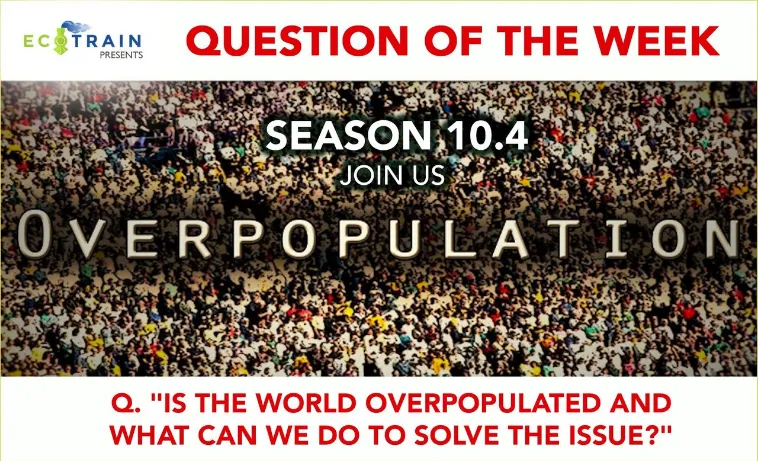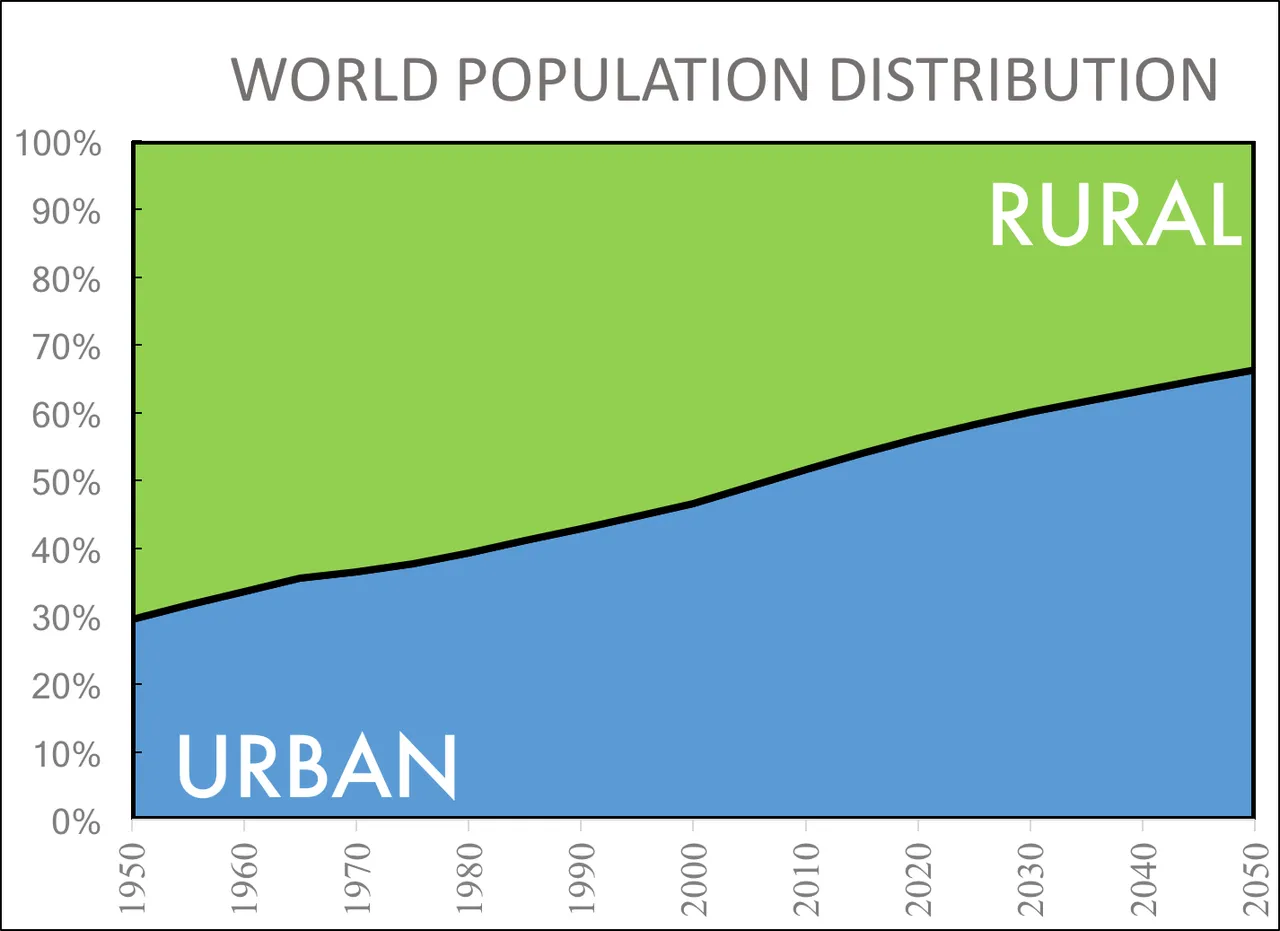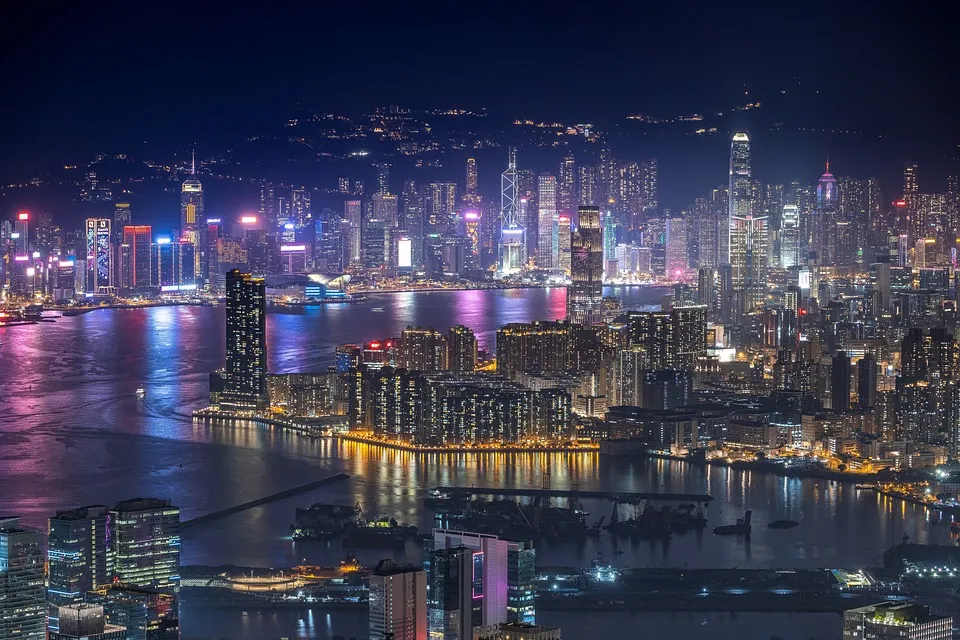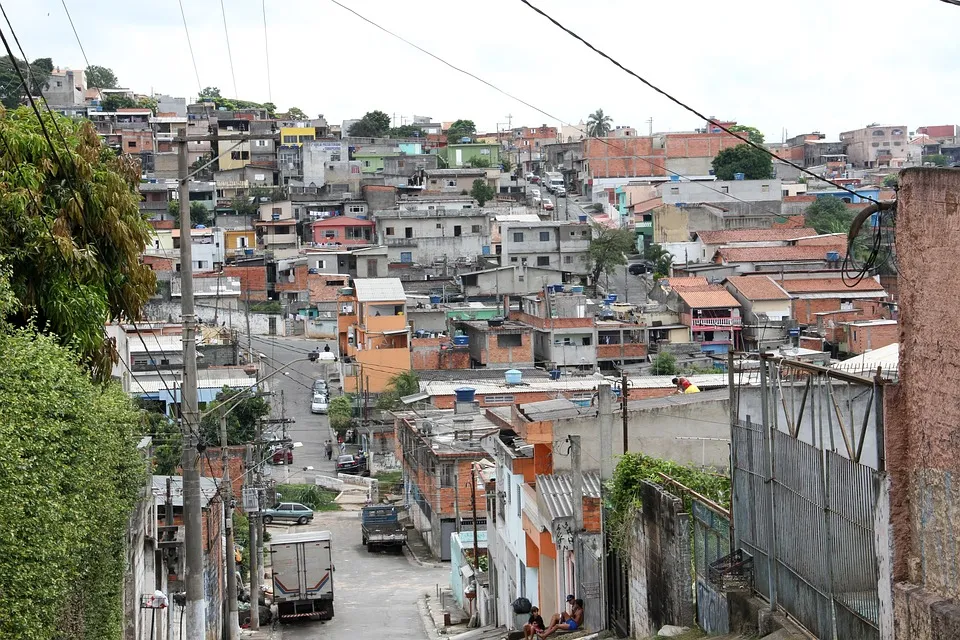...And Even If It Isn't, How Can We Deal With This Issue?
Oops, did I just give away my answer here? The query is the Question of the Week contest, held regularly by the ecoTrain community, and since I have quite a firm opinion on this subject, I'd like to share it in this post.
As I haven't been able to hide it, you can see my answer to this question is a definite no, I don't think the world is overpopulated, even with close to eight billion mouths to feed (and bodies needed to be washed, etc). Though before leaving it at that, there are at the same time a number of related factors to address, or else my answer could easily flip to the opposite.
Overpopulation ... Where?
When I look around myself most of the time (in most places I like to hang out), I don't see that we are overpopulated. That may be because I am naturally drawn to rural, sparsely populated places, while at the same time living on a relatively sparsely populated continent. Ironically, however, Mexico City, the place I call home and keep going back to, happens to be one of the most densely populated regions of not only the country, but in fact on the entire double continent. WOW! And it's true: whenever I am there, my immediate answer to this same question is accordingly an enthusiastic yes, we're hella overpopulated!!!
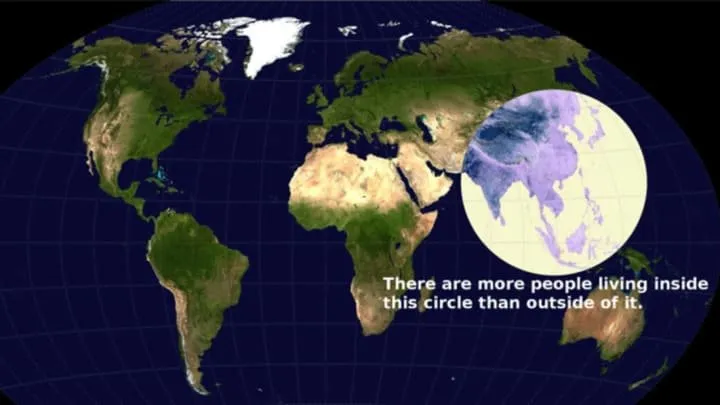
image source
You may be familiar with this famous image. It's several years old, but the shocking fact it illustrates has not changed that much. Though even before it started making its rounds on the internet, it has been no secret that China, India, and the whole of Southeast Asia is in general highly populated. But what does this tell us? Is it relevant for the question at all?
Urban vs. Rural Population
Clearly, it's hard to speak of "the world" in total, when certain regions are have a much larger population than others. But then there is another factor that applies across the board for the whole globe, for which there is no neat visual map. That has to do with whether these people live in the city or the country. Until about 15 years ago city dwellers had been a minority, but since 2007 they have surpassed the rural population, moving further away ever since. And this I believe is the point we can start talking about what is too much, and whether there are in fact too many people.
The big difference between urban and rural people is the question of sustainability. How are their needs sustained? Where does their food come from, their water, the energy they use, and everything. For country people it's quite straight forward in most places (excluding the highly complex industrialized examples, where instead of real country living what you see is small bits of city scattered throughout the country): In rural areas it's subsistence farming that produces much of the food locally, and most other needs are met in the same way.
However, all of that is rapidly decreasing. Just as how our last hunter-gatherers vanished a few decades ago, it's now subsistence farming that's making way for industrial agriculture, which directly contributes to people leaving the country for the cities. It's a general tendency that feeds itself: the city offers more material wealth, as well as the hope of a chance (fraction of a fraction) to earn the money needed to attain that wealth, while the old traditions seem to be offering little more than meager minimum. Even there, the rapid deterioration makes it questionable if there will remain even that much. So I can empathize with each country dweller who leaves for the city in search of their fortune. I probably would do the same if I were in their shoes.
But there is a massive effect this tendency has on our impact on the world. Simply by living in a city, people stop meeting their needs directly. This means, they become by default urban consumers, part of the highly complex industrial systems of production, distribution, and ultimately the waste and pollution this has on ... the rural world. Suddenly, by simply changing location and lifestyle, the population has increased massively, without changing their numbers greatly. In fact, even by having fewer children in the city compared to the country, a city family's impact on our natural resources far outweighs that of a rural family with many kids.
Solutions, Solutions, Solutions
So what can be done about this issue? Once again, I've taken away the answer already, that having fewer children is usually given anyway, and it clearly doesn't help much, though it's still better than remaining stuck in the tradition of unrestrained procreation. Also, moving out of the city, the way more privileged people in industrialized countries like to do, is only a solution on the surface. Actually, given the fact that their consumption patterns tend to remain urban, all they do is take pieces of the city into the country, which is arguably worse than remaining in the city.
So what approach would make sense, and make a real difference? I believe what's important, is to convince people that traditional rural living and local food subsistence is better than moving to the city. Hahaha, easier said that done! After all, established infrastructure, financial and educational opportunities, and a huge range of products and services unavailable locally, sort of speak for themselves. In other words, the large-scale mass convincing must come with even better arguments: all those goods and services have to be available rurally as much as in urban places. In fact, many of these (particularly the more important ones, such as food, health care, and social needs) must obviously surpass what the city has to offer. I can see the world moving in the right direction in this regard, but we still have a long way to go.
Another important part of the solution, as I see it, is letting people decide where they want to go: In other words, we must do away with borders, passports, or travel restrictions of any kind. By itself, this is no solution at all, but I believe people should be encouraged to settle in less populated places. For really remote regions, this could be a great blessing, as each pair of hands, and each skilled brain can be a great benefit to its few neighbors. And that makes them also more highly valued, so it would be in the interest of those wanting to relocate.
Most importantly, however, I think education is what could potentially have the highest impact moving in this direction: Teaching people how to provide for their own and each others' needs in small communities out in the country, is what will give them value, both internally in their own self image, as well as externally for other members of their community. This way, instead of focusing on how to gather as much money as possible, each person would be aiming for how to make themselves as valuable as possible for their mutual survival. Under these conditions, I think that our great numbers could easily be sustained by our global resources. In fact, a few billions more would not make much of a difference either. The way we're currently going however, I don't see much of a sustainable future, even if there should be a reduction in the world population, for whatever reason.
